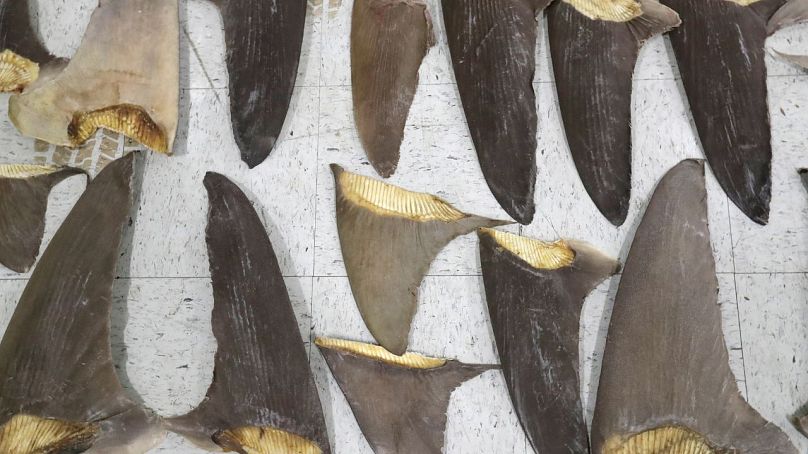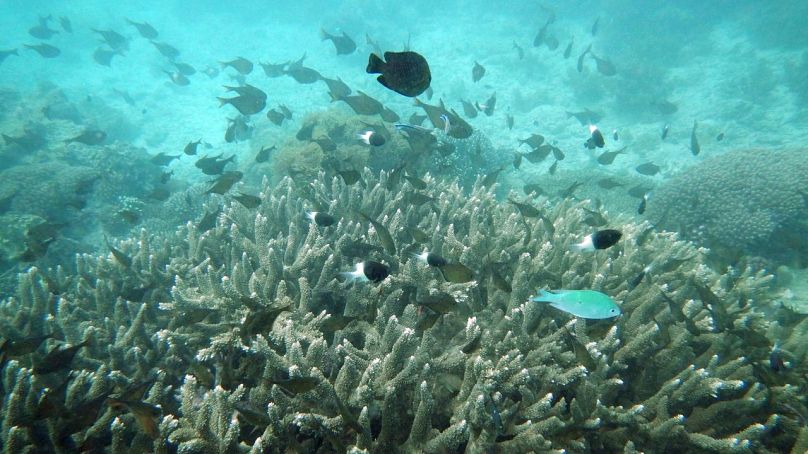Delegates at the UN's Ocean Conference are urging people to 'learn to love sharks' and 'listen to the elders' if they truly want to protect the world's waters.
World leaders gathered for the UN Ocean Conference in Lisbon this week. Here are five of the most striking phrases from the event.
 ADVERTISEMENT
ADVERTISEMENT
 ADVERTISEMENT
ADVERTISEMENT
Learn to love sharks
There was huge applause when deep sea diving legend Sylvia Earle was asked what we need to do to protect society's least favourite apex predator, the shark. The answer: 'love'. Learning to love and celebrate sharks, rather than fearing them, would make a huge contribution to restoring a healthy ocean ecosystem, she argued. Shark populations have been hit hard by so-called 'finning' practices, where the fins are cut off animals while they are still alive and then sold to south-east Asia, where they are a delicacy. Portuguese national airline TAP announced that it would be joining the Flywithoutfins.org coalition, promising to never fly traded-shark fins, part of a wider initiative to stamp out this trade.
Listen to the elders
Many of the discussions on the future governance of coastal areas stressed the need to take local and indigenous knowledge on board during decision-making and planning, particularly for new Marine Protected Areas. Melchior Mataki from the Ministry of Environment, Climate Change and Disaster Management from the Solomon Islands told the assembled leaders that: "Our elders say that we need to have a 'seeing with two eyes' approach". This means applying both scientific knowledge and local insight to protect the oceans. "Ocean governance is about the governance of people, and it's a process," he said.
No coral is like no trees
There are predictions that the majority of coral reefs will be gone by the end of the century. "Not having corals is like not having trees", according to UN Secretary General's Special Envoy for the Ocean Peter Thomson. "500 million people worldwide depend on corals for food and protection", he said, "So why aren't we looking after them?" The consensus is that preserving corals is worth the fight, and conservation groups have identified corals in key parts of the world which can be helped if local efforts to reduce harmful pollution from the land and to stop damaging fishing practices are implemented. Professor Carlos Duarte from King Abdullah University also presented plans to restore corals in the Red Sea, using corals which have naturally adapted to living in higher temperatures to repopulate reefs. His ideas are on the edge of science and technology, but many in the room were willing him to succeed.
A moment of blue enlightenment
So said John Bell, from the European Commission's DG for Research and Innovation. He wasn't alone in feeling that the tide is slowly turning on ocean issues. Huge damage has been done to ocean ecosystems from overfishing, pollution and poor management. Climate change is making oceans warmer, higher, and more acidic, and almost nothing much can be done to slow that process. However, efforts in some areas are starting to bear fruit. Later this year an agreement on the governance of the high seas is expected to be delivered, while the Conference also saw detailed sessions on how to implement the UN ban on ocean plastic pollution agreed in March this year. Many countries announced new Marine Protected Areas, too, working towards the '30 by 30' worldwide initiative for governments to designate 30% of Earth's land and ocean area as protected areas by 2030.
Talkin' 'bout my generation
Echoing the words of English rock band The Who, UN Ocean Conference, Secretary General Antonio Guterres chose to 'put his people down' in an opening interview in which he quite plainly put the blame for the peril our planet faces at the door of 'My Generation'. He told reporters that his fellow band of baby boomers were "responsible for the fact that we are at war with nature, that we have climate change, that the situation is not under control. We should be reducing emissions dramatically". Politicians may sometimes sound like stuck records, but this phrase struck a power-chord at the opening of the conference.












